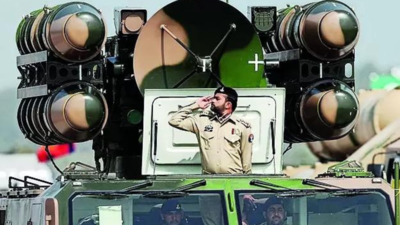KARACHI: Ten years have passed since Ajoon Khan’s son died in a ghastly attack by the Pakistani Taliban that killed about 150 people, mostly children, at a military-run school in Peshawar, in northwestern Pakistan. But the pain of loss is unrelenting – it only grows deeper with time. Khan, a lawyer, said he could never forget the parents sobbing and pleading outside the school gates.
The brutal assault on the school in Peshawar led to rare political unity in support of a comprehensive counterterrorism strategy for Pakistan and a vast military operation in the country’s former tribal areas near Afghanistan. The efforts forced militants to retreat across the border and brought a degree of relative peace to Pakistan. Large-scale terrorist attacks were significantly reduced, with fatalities dropping from 2,451 across 1,717 attacks in 2013 to 220 in 146 attacks in 2020. But the hard-won gains are now in jeopardy.
Over the past few years, violence by the Pakistani Taliban and other Islamic militant groups has surged in parts of Khyber Pakhtunkhwa province, in northwestern Pakistan. Experts attribute the increase to the Afghan Taliban’s seizure of power in neighboring Afghanistan in Aug 2021.
Last week, the interior ministry reported that 924 people, including civilians and law enforcement personnel, had been killed in 1,566 terrorist attacks across the country over the past 10 months. It said 341 terrorists had been killed during the period.
Early on Saturday, sixteen soldiers were killed in northwest Pakistan in an attack by Islamist militants, a senior police official in the South Waziristan region said. Tehreek-e-Taliban Pakistan (TTP), also known as the Pakistan Taliban, claimed responsibility for the attack, giving a higher figure for the number of personnel killed, Reuters reported.
Experts and security officials have identified a range of challenges impeding Pakistan’s progress against terrorism: political instability, weak governance, dwindling public support, economic constraints and reduced US counterterrorism assistance after the end of the 20-year war in Afghanistan.
“The greatest challenge lies in mobilizing the necessary financial resources and manpower for operations across such vast regions,” said Muhammad Amir Rana, director of the Pak Institute for Peace Studies, a security think tank in Islamabad. The source of the problem for Pakistan, experts say, is found across the border, in Afghanistan.
The Taliban administration in Kabul, the Afghan capital, denies accusations of harboring militants from TTP. But Asfandyar Mir, a senior expert at the United States Institute of Peace, said the TTP had been given “a permissive safe haven in Afghanistan,” which had allowed it to become “resilient and lethal.”
Pakistani security officials privately acknowledged that they had misjudged how the new Taliban rulers of Afghanistan would handle TTP. The officials had anticipated that the Taliban leaders would help curb the TTP in return for the covert support that Pakistan had provided them during the US-led war. Instead, the Taliban in Kabul have provided the TTP with resources and advanced American-made weapons and equipment seized after the collapse of the US-supported Afghan govt, according to a senior security official in Islamabad who spoke on the condition of anonymity.
The TTP has gone on to unleash a wave of attacks inside Pakistan as it wages a campaign whose aim is to overthrow the govt. Among them was a suicide bombing in January 2023 that killed over 100 people at a mosque in Peshawar.
Pakistani security forces have also been locked in a conflict with ethnic separatist groups in Balochistan, an arid province bordering Afghanistan and Iran that is home to the Chinese-run port Gwadar. nyt





